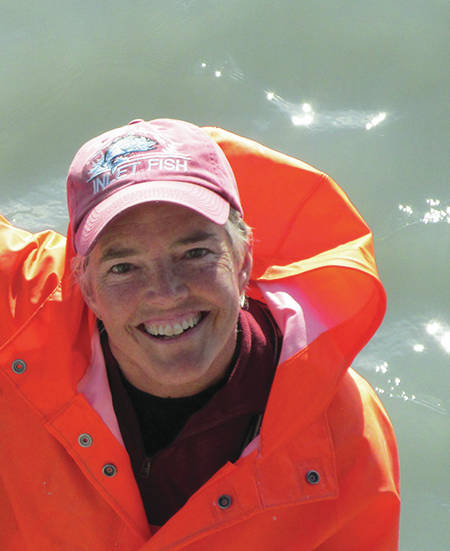The Kenai Peninsula was delivered a low blow by Gov. Mike Dunleavy this month.
At the very end of a four-year process intended to bring the Cook Inlet commercial salmon fishery into compliance with the federal Magnuson-Stevens Act, the state abruptly announced that they would refuse to cooperate with the program and basically forced the closure of federal waters in Cook Inlet to commercial salmon fishing. The consequence is that commercial salmon fishermen will be banned from fishing in the lower half of the fishing area in the inlet. It is commonly understood that the loss of salmon harvest in that area cannot be made up anywhere else and will make the seafood processing industry here no longer viable.
Before you conclude that this action was some kind of noble defiance to federal overreach, you should know that the State of Alaska already has multiple collaborative agreements with the federal government on managing numerous other fisheries in Alaska, including crab, cod, rockfish and salmon.
Our own Sen. Ted Stevens worked very hard to develop the Magnuson-Stevens Act, federal legislation that has become the gold standard for fishery management since it was passed into law in 1976. Around the U.S., many species and stocks of fish and shellfish live in both federal (3 to 200 miles offshore) and state waters (from inland waters to 3 miles offshore). Hundreds of these fisheries are managed under the guidelines of the Magnuson Stevens Act with states collaborating with the federal National Marine Fisheries Service (NMFS). It has been standard operating procedure for decades.
But not for Gov. Dunleavy. By selectively refusing to follow procedure in Cook Inlet, Dunleavy is forcing the total closure of federal waters here. This final-hour sabotage by the governor was a huge shock. Legislators had no idea this was coming. Local governments, organizations and businesses are incredulous.
The economic consequences will be devastating. Thousands of jobs will disappear in Cook Inlet coastal communities. More than a thousand family fishing businesses and support businesses will suddenly lose most of the value of their considerable assets. Tax revenues for our cities and borough will take a terrible hit.
Just as significant to me are the social and cultural losses. To say salmon fishing is an iconic lifestyle here is an understatement. Commercial fishing is not just a business. It defines our lives and our purpose. We feed Alaska and the nation with the finest possible product. I could imagine no more satisfying work than bringing wild Alaskan salmon to market. My husband is a third-generation fisherman here and that is not unusual; you may know families that are into their fifth generation of commercial fishing.
Ask yourself why a state governor would deliberately destroy our sustainable, iconic industry that provides thousands of jobs and many millions of dollars in economic benefit. Is this part of a new state policy against working Alaskans and, in particular, those who make their living in commercial fishing? Is he planning to pull the same stunt with other Alaska fisheries and devastate other coastal communities? Judging by his past behavior, I would answer yes.
For two years now I’ve been asking myself why our governor would abruptly cut off Marine Highway transportation to Alaskan communities, slash funding for schools, gut our universities, cripple Pioneer Homes and cut off access to federal Medicaid funds. I believe our governor lacks compassion and concern for others and does not have the integrity or the ability to do the job. I have signed the Recall Dunleavy petition, have you? If you haven’t, now is the time.
Catherine Cassidy is a Cook Inlet salmon drift gillnet permit holder and fishes with her husband on the F/V Williwaw. She’s lived in Kasilof since 1987.


